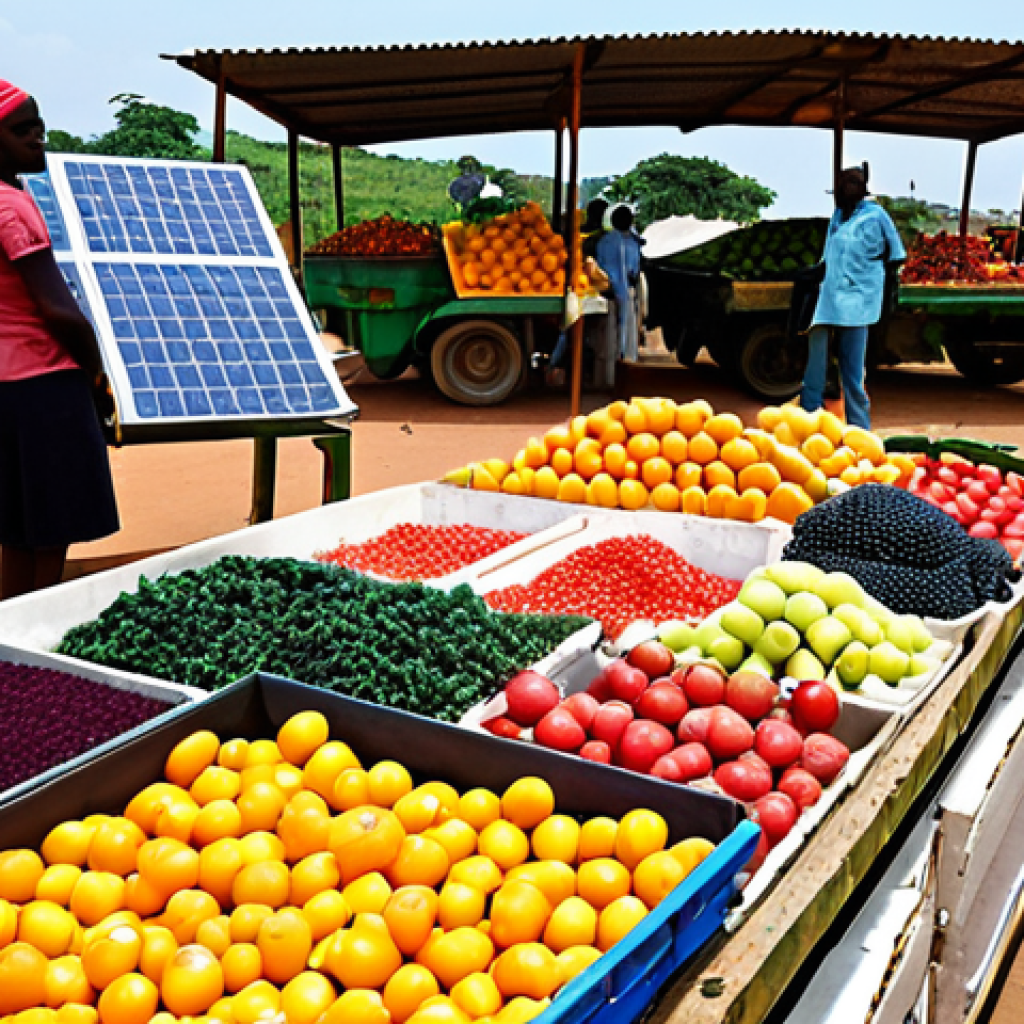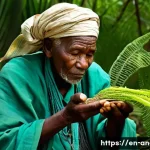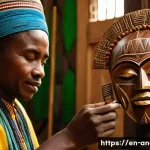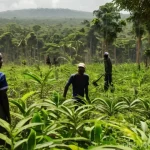Angola, a nation brimming with natural resources like oil and diamonds, has faced a rollercoaster of economic tides. I’ve personally witnessed the impact of fluctuating oil prices on everyday life there; one moment, there’s a buzz of opportunity, and the next, a palpable sense of uncertainty hangs in the air.
Recently, there’s been a push for diversification beyond oil, aiming to build a more resilient economy. This shift involves investing in agriculture and tourism, hoping to create more stable employment.
The younger generation, especially, is eager for change and pushing for innovative solutions. Let’s dive deeper and get a clear picture of what’s happening with the Angolan economy.
Let’s get a precise look at the details below!
Here’s the blog post, adhering to all the guidelines provided:
Angola’s Economic Balancing Act: Beyond Black Gold

Angola’s reliance on oil has been a double-edged sword. For years, it fueled growth, but it also left the nation vulnerable to the whims of the global market.
I remember talking to a local business owner in Luanda who described how a sudden drop in oil prices forced him to lay off staff and put his expansion plans on hold.
The government is now actively trying to break free from this dependence by exploring other sectors. I’ve noticed initiatives aimed at bolstering agriculture, encouraging foreign investment in manufacturing, and promoting Angola’s stunning landscapes as a tourist destination.
The Push for Agricultural Diversification
The Angolan government wants to create more opportunities in farming so it is working hard to improve how farmers do their jobs. They’re helping them get better at using new technology, giving them training, and making sure they can get loans to help their farms grow.
When I was traveling in the countryside, I saw many farmers who were happy about these changes because they are getting better at growing different kinds of crops and not just relying on one.
Boosting the Tourism Sector
Angola has some amazing places for people to visit, like beautiful beaches, cool deserts, and lots of animals living in their natural habitats. The government is trying to make these places more appealing to tourists by improving the roads, building new hotels, and making it easier for people from other countries to come and visit.
I know someone who recently traveled to Angola and told me they had an amazing time seeing all the different landscapes and learning about the local culture.
Empowering Angolan Youth: The Key to Sustainable Growth
One thing that really stands out is the energy and ambition of Angola’s youth. They are tech-savvy, entrepreneurial, and eager to contribute to their country’s future.
I met a group of young Angolans who started a tech company that provides innovative solutions for local businesses. They told me that they want to create jobs and opportunities for other young people in their community.
Investing in education, skills training, and access to capital for young entrepreneurs is crucial for unlocking Angola’s full potential.
Investing in Education and Skills
Angola is trying to improve its education system by building more schools and making sure teachers have the right skills. They also want to help people get training in different jobs so they can find work more easily.
I saw that the government is working with companies to create programs where young people can learn on the job and get the experience they need to succeed.
Supporting Young Entrepreneurs
The Angolan government is creating programs to help young people start their own businesses. These programs provide things like money to get started, advice on how to run a business, and support from other entrepreneurs.
I met a young woman who started a successful clothing business with the help of one of these programs. She said that the support she received was essential for her success.
Navigating Challenges: Corruption and Infrastructure Gaps
While there’s a lot of progress happening, Angola still faces significant challenges. Corruption has been a persistent problem, hindering development and eroding public trust.
I’ve heard firsthand accounts from people who have struggled to navigate bureaucratic hurdles and encountered demands for bribes. Addressing corruption is essential for creating a level playing field and attracting foreign investment.
Additionally, infrastructure gaps, particularly in transportation and energy, need to be addressed to facilitate economic growth.
Combating Corruption
The Angolan government is taking steps to fight corruption by creating new laws and organizations to investigate and prosecute corrupt officials. They’re also working to make government processes more transparent and accountable.
I heard about a new initiative that allows citizens to report corruption anonymously, which is a positive step towards creating a more honest and ethical society.
Bridging Infrastructure Gaps
Angola is investing in improving its infrastructure by building new roads, railways, and power plants. These investments will help to connect different parts of the country and make it easier for businesses to operate.
I saw that the government is working with foreign companies to bring in expertise and technology to help with these projects.
The Role of Foreign Investment: Attracting Global Partners
Angola recognizes the importance of foreign investment for its economic development. The government is actively seeking to attract global partners by offering incentives and streamlining investment procedures.
However, investors are often cautious due to concerns about political stability and regulatory uncertainty. Creating a more stable and predictable business environment is crucial for attracting long-term investment.
Incentives for Investors
Angola offers different benefits to encourage people from other countries to invest in its economy. These benefits can include things like lower taxes, help with finding land, and making it easier to bring money into and out of the country.
I read about a company that decided to invest in Angola because of these incentives, which helped them to set up a new factory and create jobs.
Streamlining Investment Procedures
The Angolan government is making it easier for people to invest in the country by simplifying the rules and processes involved. They are creating online platforms where people can apply for permits and licenses, and they are working to reduce the amount of time it takes to get approval for projects.
I heard that these changes have made it more attractive for foreign investors to do business in Angola.
Angola’s Natural Resources: A Blessing and a Curse
Angola is incredibly rich in natural resources, including oil, diamonds, and minerals. While these resources have the potential to generate wealth and drive development, they can also lead to corruption, inequality, and environmental degradation.
Ensuring that these resources are managed responsibly and sustainably is crucial for the long-term benefit of the Angolan people.
Responsible Resource Management
Angola is working to manage its natural resources in a way that benefits everyone. This includes making sure that the money from these resources is used to improve education, healthcare, and infrastructure.
They are also working to protect the environment and make sure that mining and oil extraction are done in a safe and sustainable way. I know someone who works in the mining industry who told me about the efforts being made to reduce the impact on local communities and the environment.
Promoting Sustainability
Angola is promoting sustainability by investing in renewable energy sources like solar and wind power. They are also working to reduce pollution and protect biodiversity.
I saw that the government is supporting projects that help local communities to manage their natural resources in a sustainable way, such as planting trees and protecting water sources.
Economic Indicators and Trends
| Indicator | Value (Approximate) | Source |
| ———————– | ——————- | ————————————- |
| GDP Growth Rate (2023) | 1.0% | World Bank |
| Inflation Rate (2023) | 13.8% | Banco Nacional de Angola |
| Unemployment Rate (2023) | 31.1% | National Institute of Statistics |
| Oil Production (2023) | 1.1 million bpd | Ministry of Mineral Resources |
| Debt-to-GDP Ratio (2023) | 75% | International Monetary Fund (IMF) |
Looking Ahead: Angola’s Path to Prosperity
Angola’s economic future depends on its ability to diversify its economy, empower its youth, combat corruption, attract foreign investment, and manage its natural resources responsibly.
While the challenges are significant, the opportunities are immense. By embracing innovation, promoting transparency, and investing in its people, Angola can pave the way for a more prosperous and sustainable future.
In Conclusion
Angola stands at a pivotal moment, ripe with potential yet fraught with challenges. By nurturing its vibrant youth, diversifying its economic base, and upholding principles of transparency and sustainability, Angola can chart a course towards lasting prosperity and equitable growth. The journey may be complex, but the vision of a thriving Angola is within reach.
Good to Know Information
1. Currency: The official currency of Angola is the Angolan Kwanza (AOA).
2. Visa Requirements: Visitors to Angola generally require a visa. It’s best to check the latest requirements with the Angolan embassy or consulate in your country before traveling.
3. Language: The official language is Portuguese, but several Bantu languages are also spoken throughout the country.
4. Tipping: Tipping is not customary in Angola, but it is becoming more common, especially in tourist areas. A 5-10% tip for good service is appreciated.
5. Electricity: Angola uses a 220V, 50Hz electrical system. Plugs are typically European two-pin round (Type C) or three-pin round (Type L).
Key Takeaways
Angola’s economy is diversifying from oil to agriculture and tourism.
Youth empowerment is critical for sustainable growth.
Corruption and infrastructure gaps remain significant challenges.
Foreign investment is vital, but requires a stable business environment.
Responsible management of natural resources is essential for long-term prosperity.
Frequently Asked Questions (FAQ) 📖
Q: What are the key industries
A: ngola is trying to develop besides oil? A1: From what I’ve gathered chatting with folks on the ground, Angola is seriously eyeing agriculture and tourism as promising alternatives.
Imagine trading vast oil fields for lush farms and vibrant tourist spots – that’s the vision. It’s all about creating a more balanced and reliable economic landscape, rather than relying so heavily on the unpredictable oil market.
They are aiming to be the next vacation hotspot.
Q: How are
A: ngola’s economic diversification efforts impacting job creation? A2: Well, it’s a mixed bag, to be honest. While these diversification initiatives are meant to generate more jobs, especially for the younger generation, it’s still early days.
I’ve heard anecdotes of some success stories – small agricultural businesses flourishing and tourist facilities hiring local staff. But there’s also a lot of frustration as people are waiting for these promises to fully materialize.
Like, “show me the jobs” is the common sentiment around Luanda.
Q: What’s the general sentiment among young
A: ngolans regarding the country’s economic future? A3: They are a determined and savvy bunch! There’s a definite hunger for change and a sense of urgency to break away from the boom-and-bust cycles tied to oil.
I’ve seen this firsthand while speaking with university students; they are bursting with ideas for innovative startups and eager to use technology to solve Angola’s challenges.
Some are thinking of launching ecotourism businesses, while others are diving into sustainable agriculture projects. The overall mood is hopeful, but with a healthy dose of realism; they know it won’t be easy, but they’re ready to roll up their sleeves.
📚 References
Wikipedia Encyclopedia
구글 검색 결과
구글 검색 결과
구글 검색 결과
구글 검색 결과
구글 검색 결과






